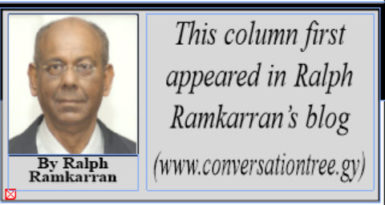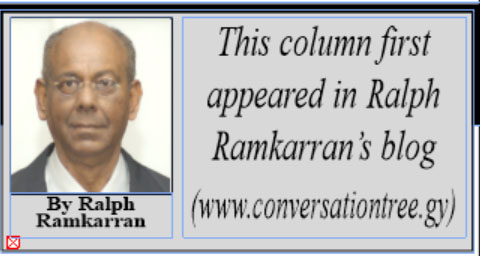The ruling elite in the United States, supported by those of Europe, are becoming apoplectic at the prospect of a rapprochement between the US and Russia, which could lead to the lifting of sanctions against Russia. Not since President George W Bush looked into the eyes of President Putin and saw his soul, has the prospect emerged of better relations.
The US press, reflecting the ruling elite, has demonized President Putin as an evil genius intent on restoring the power of the old USSR and the greatness of old Russia at the expense of the US and its allies.  The elite is convinced that President Putin is so clever that in any encounter between Trump and Putin, the latter will inevitably prevail. This has reached almost hysteria stage since the CIA concluded that Russia intervened in the US elections by hacking into computers of the Democratic Party and officials and leaking it to Wikileaks. No other narrative, not even Russia’s accusation of Hillary Clinton’s intervention in Russia’s presidential elections against President Putin, is permitted to see the light of day.
The elite is convinced that President Putin is so clever that in any encounter between Trump and Putin, the latter will inevitably prevail. This has reached almost hysteria stage since the CIA concluded that Russia intervened in the US elections by hacking into computers of the Democratic Party and officials and leaking it to Wikileaks. No other narrative, not even Russia’s accusation of Hillary Clinton’s intervention in Russia’s presidential elections against President Putin, is permitted to see the light of day.
The US is the leading imperial power in the world today and its military and economic might dwarf those of any other nation. Its two main ‘regional’ competitors are Russia and China, both of which it needs to and seeks to contain in order to maintain its imperial hegemony. This is not a choice. It is a compelling logic of imperial policy, often disguised as ‘US’s vital interests,’ that the US is forced to follow. Thus the core of the dispute between the US and Russia (and China as well) is the US struggle for dominance over these competitors. In China it takes place in the South China Sea, where the new US Secretary of State has threatened confrontation, and in the Trans Pacific Partnership, now closed down by President Trump, who is now making other aggressive noises over trade.
During the dismantling of the Cold War, President Gorbachev agreed not to oppose the reuniting of Germany in return for a halt of Nato expansion to the east. Germany was united but Nato expanded to the front door of Russia, which finally indicated that any attempt to expand Nato into Georgia or Ukraine would be resisted by Russia. Notwithstanding Russia’s clear positions, Nato entertained Georgia’s application to join. Russia invaded Georgia and ‘liberated’ territory, which it alleged was struggling for independence.
Then, unrest was fomented against a pro-Russian President, Poroshenko, in the Ukraine, allegedly by the US intelligence services using fascist elements in the Ukraine, when he withdrew an application to join the European Union. A pro-US President was elected, who promptly indicated that he intended to join the EU as well as Nato, Consequently, Russia extended its support to a rebellion in eastern Ukraine, allegedly sending in the Russian military, which Russia has denied. Russia annexed the Crimea, the population of which later approved the annexation in a referendum. Even though the referendum was conducted while Russian troops were present, it is generally agreed in the West that Crimea is heavily pro-Russian.
The disputes between Russia and the West were further aggravated by the stationing by the US of a new range of nuclear weapons in Europe, viewed as a threat by Russia, but which the US ludicrously claimed are directed to missiles from Iran, which has never threatened Europe and which has signed an agreement not to produce nuclear weapons. US troops are also being stationed in the Balkans and in Poland with the stated intention of being directed against Russia. There should be little difficulty in understanding Russian nervousness and consequent resistance to its further encirclement by Nato and its fears of more US nuclear weapons on its borders. Not to be forgotten is Russia’s economic interests in the region surrounding it, as well as in Western Europe, as it tries to expand its sale of natural gas on which its economy depends.
Then came Russia’s intervention in the Syrian civil war on the side of the Assad regime, whose overthrow the US was actively seeking by its support of the rebels. At the time when Assad’s losses were mounting and his downfall was predicted, Russia gave air support and eventually prevailed against rebel forces. There were many civilian casualties and it was terrible to watch. But the US has remained silent at civilian casualties in the ongoing Saudi Arabian war against Yemen and in Palestine in the past, in both cases of which US weapons are and were used.
It is difficult to offer any sympathy for the brutal dictatorship of Assad and a civil war in which he fired the first shot. Hillary Clinton, as Secretary of State, enthusiastically supported the rebels, some say by diverting arms from Libya. But the danger of an al Qaeda takeover, with devastating consequences for the people of Syria, has been lost amidst the anti-Russian propaganda and the US’s wounded pride at being bested in Syria by Russia.
Professor Mearsheimer of the University of Chicago has written and spoken eloquently and at great length on US-Russia relations, lifting the fog and elucidating the issues. Hopefully, some of his ideas, which could lead to a return of less antagonistic relations, will prevail.





